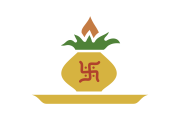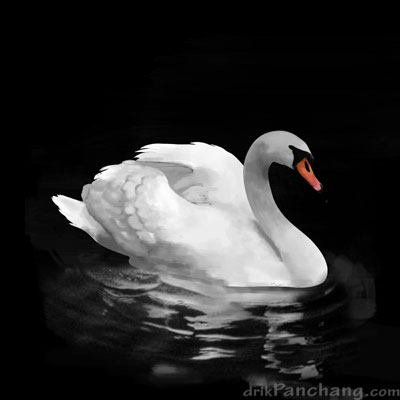
























Pitru Paksha is a 15 lunar days period when Hindus pay homage to their ancestors, especially through food offerings.
According to South Indian Amanta calendar it falls in the lunar month of Bhadrapada beginning with the full moon day or day after full moon day.
According to North Indian Purnimanta calendar this period falls in the lunar month of Ashwin beginning with the full moon day in Bhadrapada or next day of full moon day.
It is just nomenclature of lunar months which differs and both North Indians and South Indians perform Shraddha ritual on similar days.
The last day of Pitru Paksha is known as Sarvapitri Amavasya or Mahalaya Amavasya. Mahalaya amavasya is the most significant day of Pitru Paksha.
According to the descriptions found in the scriptures, "Shraddhaya Idam Diyate Iti Shraddham", i.e., any ritual performed for the ancestors with proper method and devotion is called Shraddha. References to Shraddha rituals are found in many scriptures such as Manusmriti, Viramitrodaya, Shraddha Kalpalata, Shraddha Tattva, Pitru Dayita and others. Various types of Shraddha have been described in the scriptures.
Maharshi Parashara has said - "Whatever act is performed with devotion, with Sesame Seeds (Yava), Darbha (Kusha grass) and Mantras, along with offerings of Havishya at the right place, time and to the right recipient, is Shraddha." Shraddha brings prosperity and happiness in worldly life and grants liberation at the end. It increases the longevity of the performer. Hence, a wise person must perform Shraddha with devotion.
According to Markandeya Purana -
आयुः प्रजां धनं विद्यां स्वर्गं मोक्षं सुखानि च।
प्रयच्छन्ति तथा राज्यं पितरः श्राद्धतर्पितः॥
Ayuh Prajam Dhanam Vidyam Svargam Moksham Sukhani Cha।
Prayachchhanti Tatha Rajyam Pitarah Shraddhatarpitah॥
Meaning - "When pleased with Shraddha, the ancestors grant the performer wealth, knowledge, happiness, progeny, long life, as well as liberation and moksha."
The scriptures further state that not only the performer, but also the one who inspires and approves Shraddha, as well as those who know its procedure, all attain the merit of performing it.
In Uttar Pradesh, Bihar, Rajasthan, Haryana and other North Indian region, Pinda Daan holds great importance during Shraddha. Performing Pinda Daan at sacred places like Gaya, Badrinath, Prayag and Kashi is considered extremely meritorious. Generally, while sitting on a Kusha mat, offerings of Pinda made from sesame seeds, barley, rice, milk, honey and Ghee are made. Among these, Gaya Shraddha is considered the most superior.
In Maharashtra and Gujarat, Shraddha rituals vary by region. In Maharashtra, Mahalaya Shraddha is especially popular. On this day, special dishes are prepared at home, such as Puran Poli, Katt-Saag, Bhaji and God Shevaya, etc. After the meal, it is considered obligatory to offer food to Brahmins, cows, crows and dogs.
In Bengal, Odisha and Assam, Shraddha is mainly performed in the form of Tarpan. On Mahalaya Amavasya, people take a holy bath in sacred rivers like the Ganga and perform tarpan with sesame seeds and water. In Odisha, the Bada Osha tradition is also associated with Shraddha. In Assam, Shraddha is called Shraaddhaa (श्राद्धा) and mainly involves rice, sesame and milk offerings.
In Andhra Pradesh, Karnataka, Tamil Nadu, Kerala and other South Indian region, Shraddha is referred to as Pitru Karma. In Karnataka, Mattu Amavasya is observed, while in Tamil Nadu, Shraddha is performed on Mahalaya Amavasya. Offerings such as Vadukulam (Tamboola), banana leaves, coconuts (fresh and dried), Brahmin Bhoj and Dakshina hold special importance. In Kerala, Shraddha is known as Bali, where rice and bananas are offered at the Kavu, also known as Deva Sthanam.
In Nepal, Shraddha is known as Shraddha Karma or Pinda Daan. At the Shri Gokarneshwar Temple in Kathmandu, there is a tradition of performing daily Pinda Daan from Shravan Purnima to Krishna Paksha Amavasya. The Pinda(s) are placed on brass or silver plates and ritually offered.
In Mysore's among the people of the Nilgiri and Kurubaru hills, Bali, i.e., sacrifices are made to both family deities and ancestors. In Mumbai, the Dhora, Kathkari and other Hindu communities worship an unpeeled coconut as a symbol of their ancestors on this day.